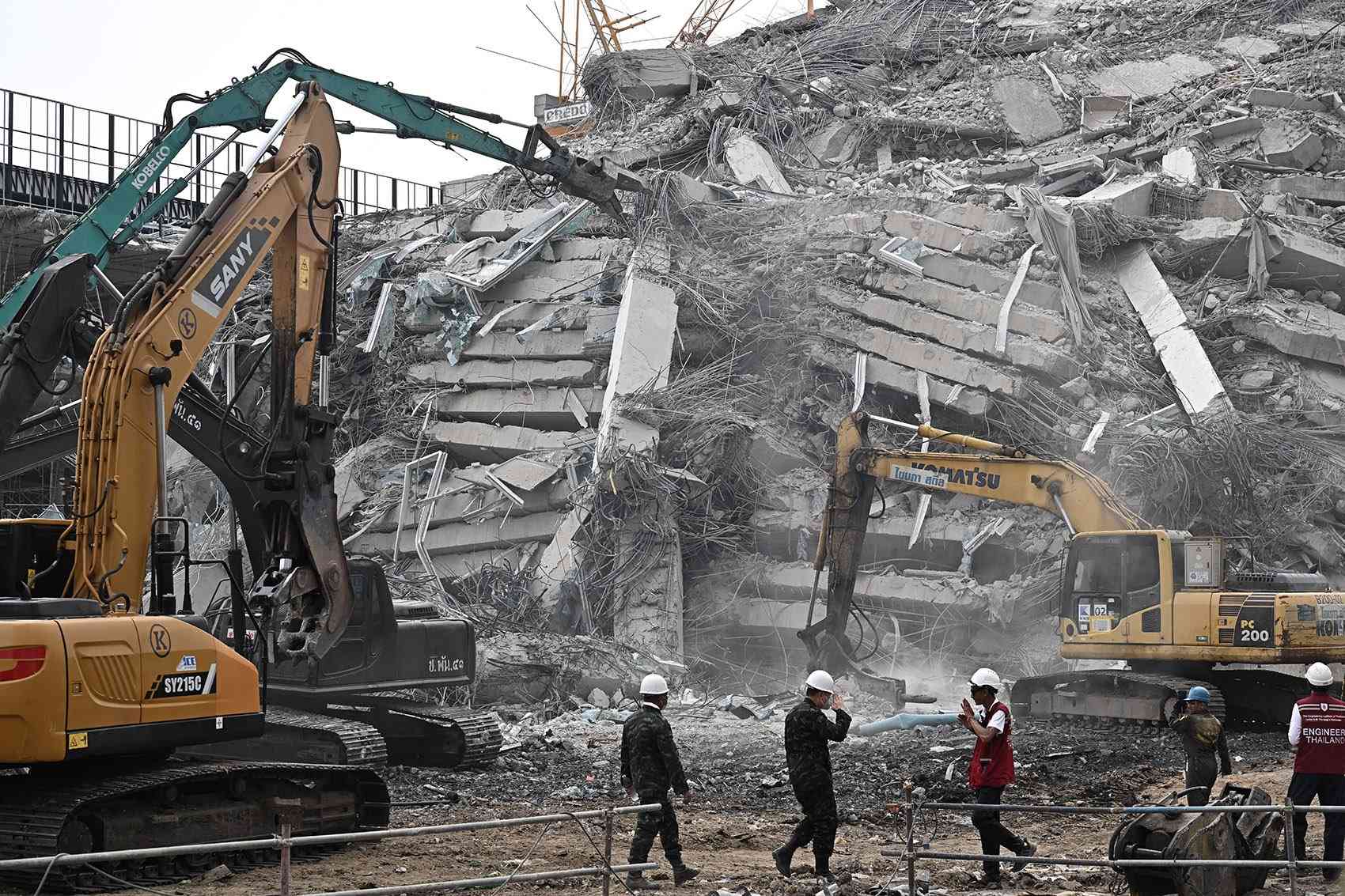
The collapse of the unfinished Office of the Auditor General building in Bangkok in the March 28 earthquake was no accident. It was a direct result of negligence, corruption, and a growing pattern of unchecked Chinese influence in Thailand.
The building was constructed by China Railway No. 10 Engineering Group (CREC)—a Chinese state-owned company—with what appears to have been substandard steel from Xin Ke Yuan, a factory in Rayong Province that had been ordered to shut down months earlier for violating Thai safety standards. But electricity bills show that it continued full-scale operations, with a 6.4 million-baht power bill in March 2025 alone.
When the building collapsed, killing scores of mostly migrant workers from Myanmar who were employed at the site, CREC deflected the blame, claiming its construction materials met all standards and were thoroughly checked.
CREC is not a one-off. Chinese state-owned enterprises and private investors are pouring into Thailand with a pattern of disregard for law, transparency, and the Thai public. In many cases, they buy land through shell arrangements using Thai proxies or joint ventures, allowing them to bypass financial oversight. Even communal forests or prime agricultural land are now being sold off to Chinese buyers.
Chinese businesses are also taking over Thailand’s retail and manufacturing sectors. In areas like Pratunam, Chinese garment producers have moved in to secure prime real estate and undercut local prices with mass-produced goods. Thai textile manufacturers, unable to compete, are closing down. Demand for Thai raw materials is falling. The result is fewer jobs, lost income, and declining industry capacity. Chinese businesses are not just competing—they are pushing locals out of the market entirely.
This pattern is not limited to manufacturing or agriculture. Chinese capital has entered every corner of the Thai economy, often through grey channels. Illegal businesses like online gambling, zero-dollar tours, call centers, counterfeit goods, and unregulated loans are thriving. Profits from these operations do not circulate in the Thai economy—they are funneled back to China.
Chinese capital is moving into Southeast Asia not for partnership, but to escape regulation and squeeze profits from places with weaker governance. In places like Myanmar, Cambodia, and Laos, Chinese money flows where state oversight is weakest. Thailand, it seems, is now part of that same strategy. The Thai government continues to grant visa exemptions to Chinese tourists, claiming it supports tourism. But in practice, this benefits Chinese-owned tour operators, transport services, and hotels. Tourists come and go, but Thai workers see little benefit.
The Chinese Embassy insists these activities benefit the Thai economy. But when factories collapse, land is illegally seized, and local businesses disappear, the supposed benefits start to look like costs. Public anger is rising, especially online, where Thai citizens have started questioning why Chinese companies are allowed to operate above the law. But this anger is being managed, not by listening to the public, but by controlling the narrative. Negative coverage is taken down. Whistleblowers are silenced. The government prioritizes its relationship with Beijing over the concerns of its own people.
- Chinese threats on The Standard condemned
- News in depth: Secret grave exposes Chinese ‘cartel’s’ identity fraud scam, fraudulent schemes
- Surface Wilmar’s plant 75% complete
- Surface Wilmar in US$50m Olivine revival plan
Keep Reading
Thailand is not benefiting from Chinese investment. It is being exploited by it. Land, businesses, and industries are slipping out of Thai hands. The Thai economy is being reshaped not by Thai workers and entrepreneurs, but by decisions made in boardrooms in Beijing.
If this continues, Thailand risks becoming a country where key industries are owned and controlled by outsiders, and where decisions about land, labor, and national resources are made to serve foreign interests. The government has a choice. It can enforce its own laws, protect its industries, and restore control over its economy. Or it can continue down this path—trading sovereignty for short-term gains and silence in the face of abuse.
Ankit K is an assistant professor of international relations, National Defence University.







